- Home
- slideshows
- miscellaneous
- All the countries where someone managed to shut down the entire internet - and why they did it
All the countries where someone managed to shut down the entire internet - and why they did it
United States: The 2016 Mirai attack was the largest internet outage in history.

Ethiopia: 97% without internet service following a failed coup.
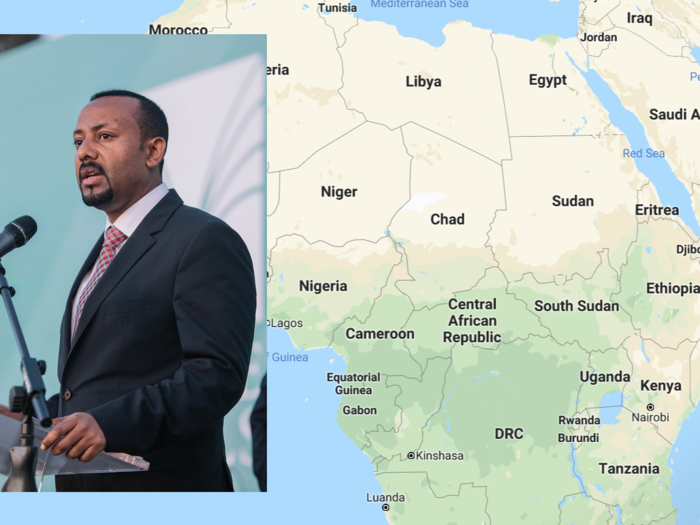
Last year, the Ethiopian government proclaimed free speech was a right. But following a failed coup attempt against Prime Minister Abiy Ahmed and the Amhara Regional State Government in mid June 2019, which led to several deaths, the internet has been off.
It is not clear who switched off the web, according to Netblocks, a monitoring service.
The Republic of Ingushetia, Russia: two-week web shutdown stymies protests in border dispute with Chechnya.

In October 2018, in the runup to a series of demonstrations against a new deal on Ingushetia's border with Chechnya, the Russian government took the internet offline for two weeks, until the protests died down. Three major Russian mobile services providers went dark. The main effect was to halt activists from using Whatsapp to organise their protests, according to the Financial Times.
Mauritania: "in the midst of a near-total internet blackout".
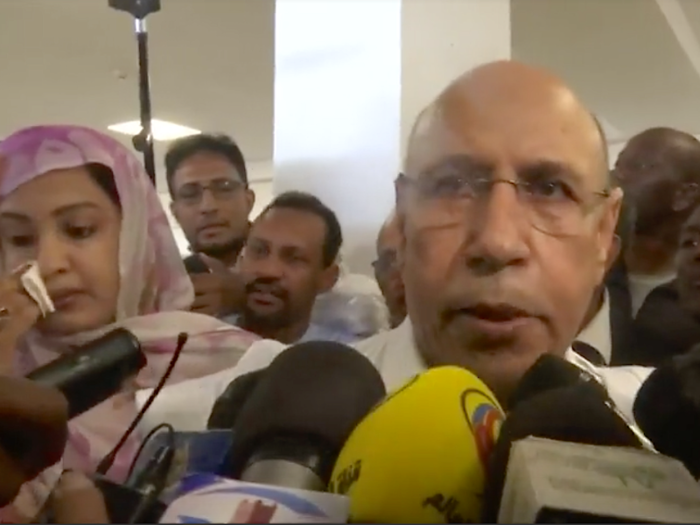
Mauritania "is in the midst of a near-total internet blackout as of 3:30 p.m. UTC Tuesday 25 June 2019," according to Netblocks, the monitoring service.
The country had been awaiting the results of a national election. But ruling party candidate Mohamed Ould Ghazouani declared victory before the votes were counted, and police began arresting opposition party members, according to the Saudi Gazette.
Sudan: a "blockade on information in and out of Sudan."
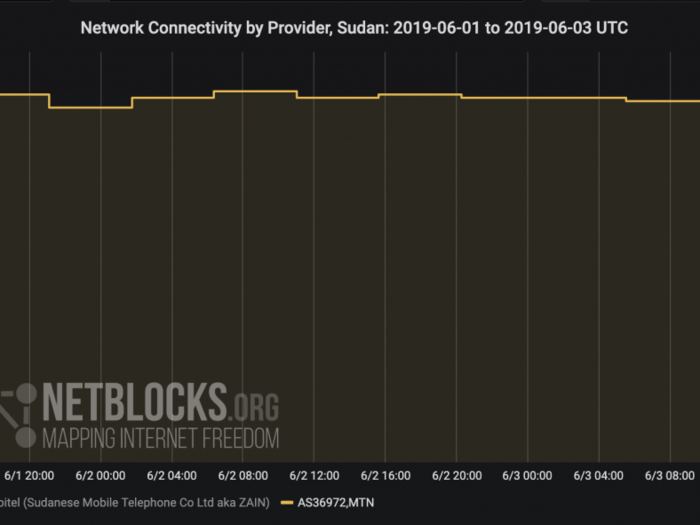
In June 2018, the government began a days-long "throttling" of the country's internet, according to Netblocks, which monitors internet freedom. While internet services technically remained online, the capacity of the biggest major network gateways were reduced and outages affected the "edge" of the network — meaning the internet was unavailable to most citizens, according to Netblocks. The takedown coincided with reports that more than 100 pro-democracy demonstrators were killed by paramilitaries in Khartoum, as the military government there tries to solidify its control.
Last year, former president Omar al-Bashir cut the internet for 68 straight days. Bashir was ousted from power earlier this year.
Chad: President Deby turns off the internet for an entire year.
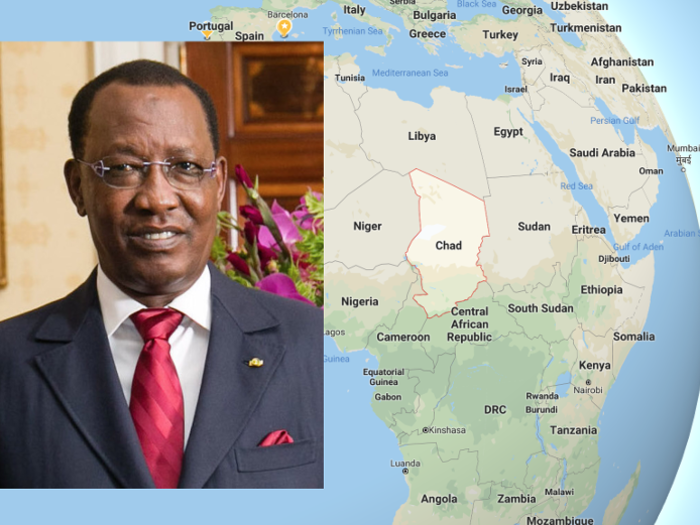
By March 2019, Chadians had been without basic access to Whatsapp, Facebook, email, or Twitter for 365 days, according to CNN. Some businesses were surviving by using expensive virtual private networks to mask and route their activity.
Human rights activists believe President Idriss Deby switched off the web to quell violence between rival tribes in the north of the country, and left it off because it consolidates his power.
Venezuela: President Nicolás Maduro blacks out the internet when his main opponent speaks.
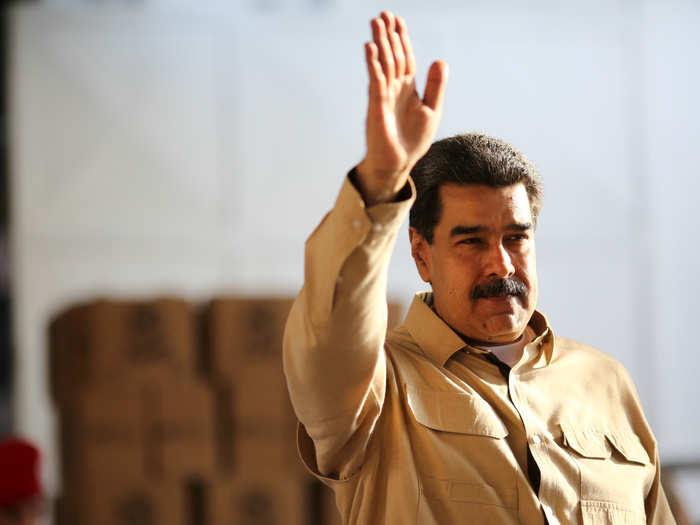
In January 2019, various large social media sites suffered brief blackouts in Venezuela. At a few points, the entire internet went down. The failures happened when Juan Guaidó, the leader of the opposition, made a speech calling for more protests against Maduro.
This animated map shows total blackouts across areas of Venezuela.
Confirmed: Evidence of total internet blackouts across regions of #Venezuela lasting over 28 hours; increasingly severe disruptions now in effect #KeepItOnhttps://t.co/nHAY8vznIG pic.twitter.com/P5OY7hN5y6
— NetBlocks.org (@netblocks) January 27, 2019Zimbabwe: After 8 people were killed in protests over rising fuel prices in January, President Emmerson Mnangagwa shut down the internet.
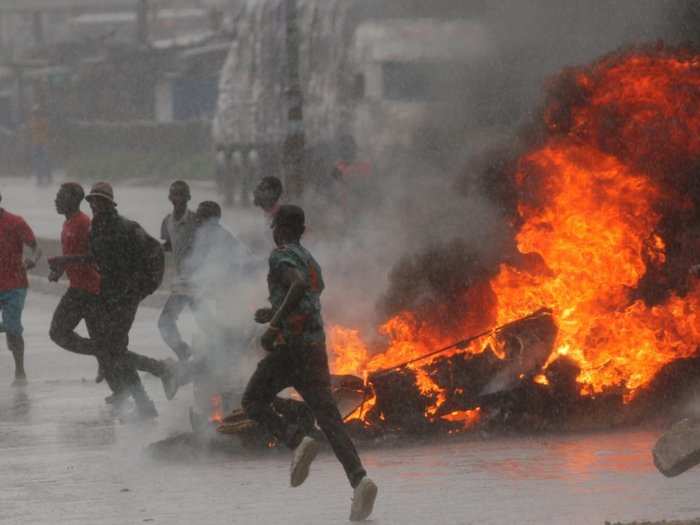
Zimbabwe's Times said critics said the government "sought to prevent images of its heavy-handedness in dealing with protesters from being broadcast around the world."
Econet Wireless, the largest internet provider in the country, said: "We were served with another directive for total shutdown of the internet until further notice."
Liberia: British hacker disables internet in attempt to help rival company.

In 2016, Daniel Kaye created a botnet named "Mirai #14" which overwhelmed Liberia's leading internet provider, Lonestar, with malicious, automated traffic. However, the "distributed denial of service attack" was so severe that it ended up jamming the rest of the country's internet service too, for a period of about 24 hours.
He had been paid by Cellcom, a rival company to Lonestar.
In January 2019, Kaye was sentenced to prison for 32 months in Britain.
Democratic Republic of Congo: Internet goes down one day after a national election.
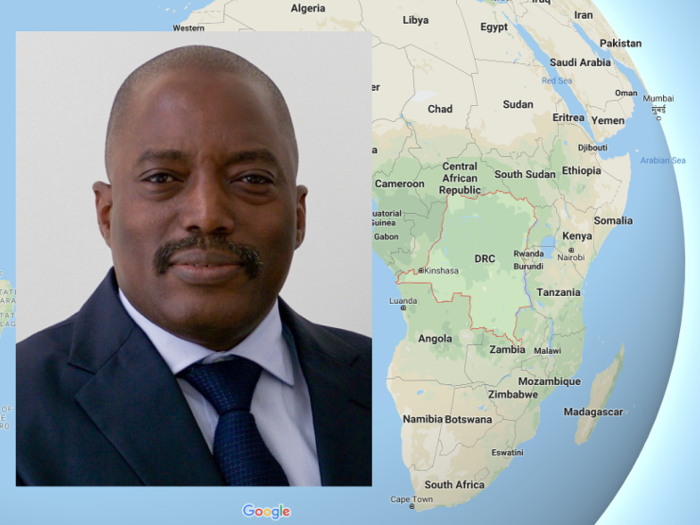
President Joseph Kabila stepped down after 17 years in office and his government held an election to replace him in December 2018. But the day after the vote, the internet went offline in the major DRC cities of Kinshasa, Goma, and Lubumbashi. Opposition party candidates claimed the takedown happened to prevent the media from broadcasting their victory.
Kazakhstan: Daily blackouts whenever one man speaks
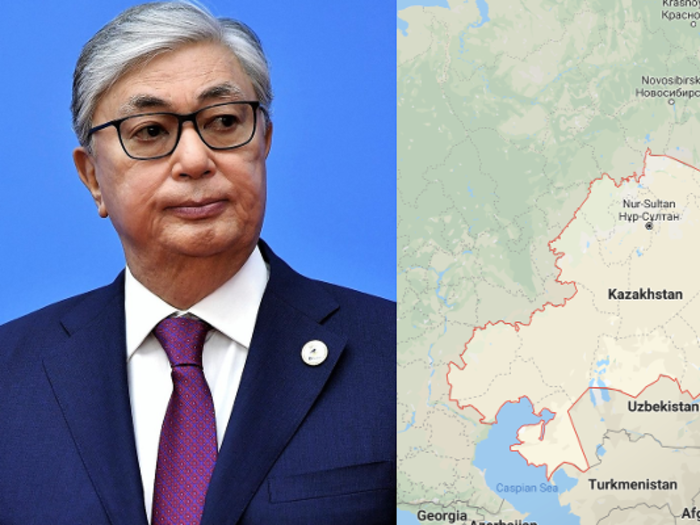
"Since March of 2018, authorities in Kazakhstan have throttled the internet almost daily for about an hour, whenever Mukhtar Ablyazov, the leader of the opposition group Democratic Choice of Kazakhstan, is streaming on Facebook Live," according to Access Now. "Once Mr. Ablyazov goes online, users report being unable to view or upload pictures/videos on Facebook Live, YouTube, Twitter, Instagram, Vkontakte, Odnoklassniki, and other social media platforms."
Turkey: 12 million taken offline.
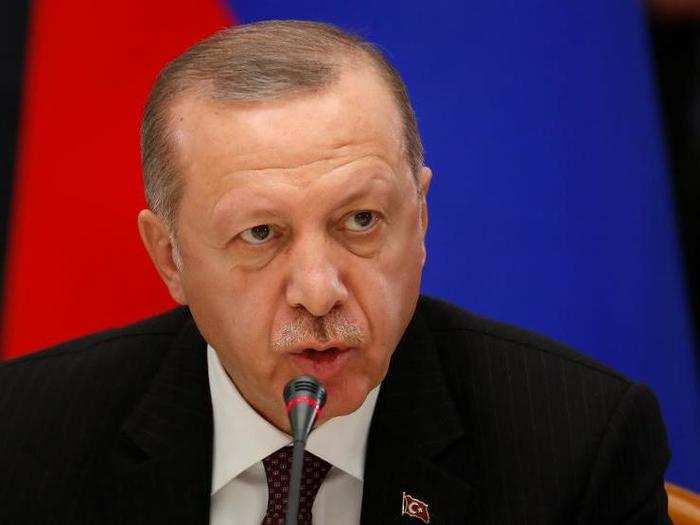
Turkey routinely restricts internet access to crack down on the Kurdistan Workers' Party, according to Freedom House, a pro-democracy group.
"On September 11, 2016, landline, mobile phone, and internet services were shut down in 10 cities for six hours, affecting some 12 million residents; the shutdown came as 28 Kurdish mayors were being removed from their posts.6 A month later, the government suspended mobile and fixed-line internet service in 11 cities for several days, leaving 6 million citizens offline. Key public services, such as banks and payment mechanisms, were reportedly unavailable," Freedom House says.
India: 134 internet blackouts in 2018 alone.
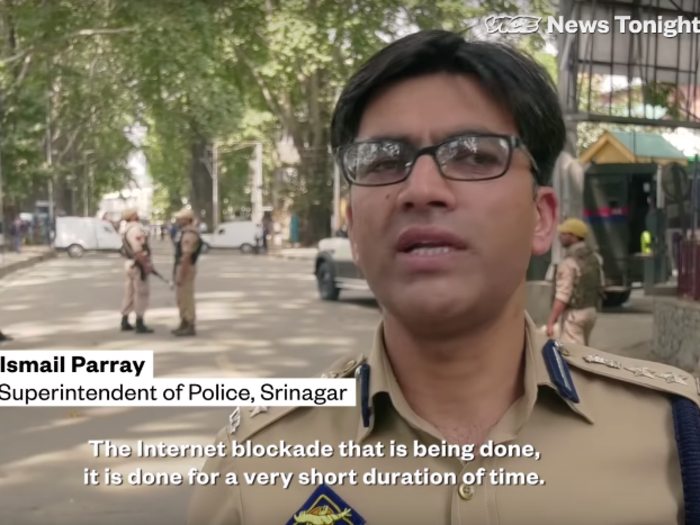
India is by far the worst offender when it comes to internet shutdowns. It cut off the web to large regions like Kashmir 134 times in 2018. The authorities are hoping to stop the spread of violence through apps like Whatsapp. But as this video from Vice News/HBO shows, it cripples the business community there.
Here's a summary of all internet shutdowns in 2018.
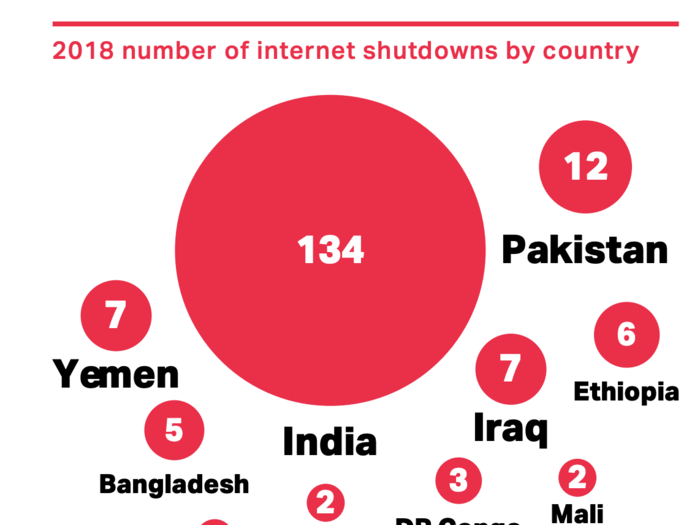
Read Access Now's full report into internet freedom here.
Follow Netblocks' internet shutdown observatory for real-time updates here.
- Read more:
- A false rumor on WhatsApp started a run on a London bank
- How to find the little-known 'kill switch' that lets you use Facebook with the maximum amount of privacy
- The Russians are screwing with the GPS system to send bogus navigation data to thousands of ships
- One of the West's biggest cybersecurity vulnerabilities is our idiotic habit of sending servers full of sensitive information to foreign countries
- Someone is trying to take entire countries offline and cybersecurity experts say 'it's a matter of time because it's really easy'
Popular Right Now
Popular Keywords
Advertisement